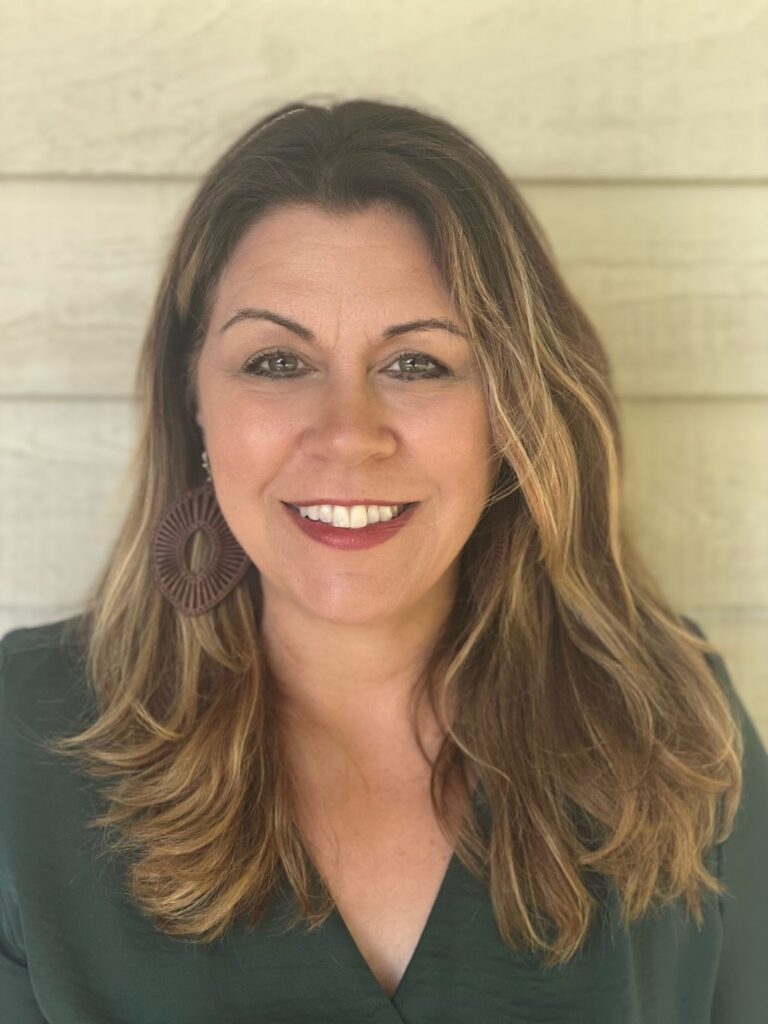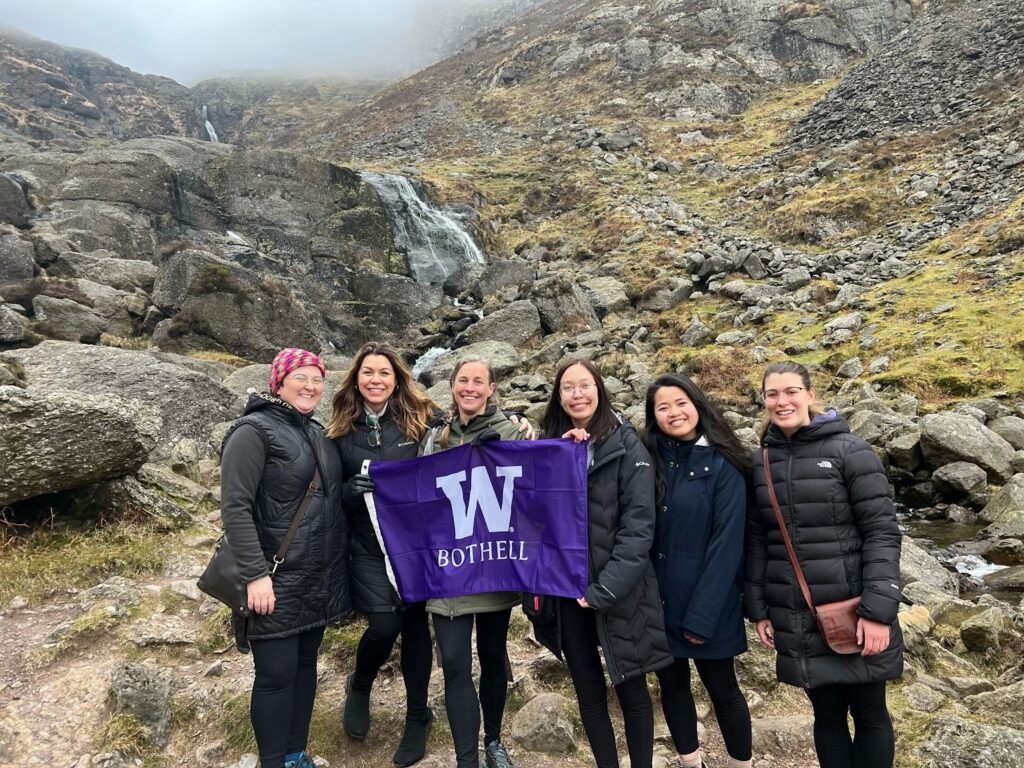Jody Early, PhD, MS, MCHES®, CHC, Professor (She/Her)

- Faculty Coordinator, Minor in Health Education & Promotion
- Affiliations: Pacific Northwest Agriculture Safety and Health Center; Center for Studies in Demography and Ecology; Center for Communication, Difference, and Equity
Ph.D. Health Studies (Community Health)
Texas Woman’s University
M.S. Health Science
Brigham Young University
B.A. English/Secondary Education (dual)
Minors: History; Health
Brigham Young University
Certifications
Master Certified Health Education Specialist (MCHES) by the National Commission for Health Education Credentialing (NCHEC).
Certified Health and Wellness Coach (American Council on Exercise)
Email: JEarly3@UW.edu
Background and Scholarship
My research, teaching and praxis are interdisciplinary and greatly influenced by Paulo Freire’s critical pedagogy, Bronfenbrenner’s ecological model, and bell hooks’ and Audre Lorde’s writings on education, social injustice, and feminism. I examine the bio-psycho-social, cultural, and systemic factors that influence the health and well-being of individuals and communities. As a social scientist and practitioner, my work is rooted in principles of community-based participatory research and critical theory. I work in partnership with communities to co-design, implement and evaluate tailored programs, campaigns, and strategies that are culturally responsive and community-driven. My scholarship over the past 30 years has covered a range of issues, including: interpersonal violence, mental health, sexual harassment, eating disorders, cancer, mhealth, mis/disinformation, eating disorders, diabetes, HIV, and COVID-19.
Another stream of my research examines the link between digital equity and health and the effectiveness of digital strategies and pedagogies in public health and higher education.
Current Grant Projects
- Mental Health Matters of Washington: Promoting Mental Health and Suicide Prevention in Washington through a Bilingual Peer Mental Health Navigator Program
- Ya Basta!: Creating Safer and More Equitable Workplaces for Latino/a/x Agricultural Workers: Developing and Validating the Sexual Harassment and Workplace Climate Survey for Agriculture (in Spanish and English)
- Basta! Preventing Sexual Harassment in Agriculture: A Multi-Level, Ecological Approach for and with Agricultural Workers in Washington State
Recent Books
Be the Change: Putting Health Advocacy, Policy, and Community Organization into Practice in Public Health Education. (Oxford University Press). Eds. Keely Rees, Jody Early, and Cicily Hampton (2023)
The Process of Community Health Education and Promotion. (Waveland Press). co-authored by Eva Doyle, Susan Ward, and Jody Early. (2019)
Select Book Chapters
Early, J., (2023) In Bensley, R., Brookins-Fischer, J. (Ed.), Digital Media and Health Promotion in Community health education methods: A practitioner’s guide (5th Edition). Sadbury, MA: Jones and Bartlett.
Massey, K., Early, J., Mohammed, S., and Cooke, C. (2023). Oppression, Racism, Income Inequity and Women’s Health Outcomes in Alexander, I.M, Johnson-Mallard, V., Kostas-Polston, E., Cappiello, J., and Hubbard, H., Women’s Healthcare in Advanced Practice Nursing, Third Edition. Springer Publishing.
Early, J., & Rees, K. Chapter 1. The role of advocacy in public health promotion. In Keely, Early, and Hampton’s Be the Change: Advocacy, Policy, and Community Organization in Public and Community Health Education. Oxford University Press. ISBN 978-019-757-0906
Early, J., & Mohammed, S. Chapter 15. Going the Distance: Advocacy for the long haul. In Keely, Early, and Hampton’s Be the Change: Advocacy, Policy, and Community Organization in Public and Community Health Education. Oxford University Press. ISBN 978-019-757-0906
Burke, S. and Early, J. (2019). Intimate Partner Violence among immigrant Latina women. Role of Religion in Gender-Based Violence, Immigration, and Human Rights, Edited by Mary Nyangweso and Jacob K. Olupona. New York: Routledge. ISBN 9781138596986
Peer-Reviewed Articles
You can find a full list of publications on Research Gate and Google Scholar
Creative Works/Public Scholarship
Videos
Early, J., and Breckwich Vásquez, V. Executive Producers. [2019]. Preventing Sexual Harassment in Agriculture: A Multi-Level, Ecological Approach. Northwest Latinos Communications and AJL Productions. Available on the Pacific Northwest Agricultural Health and Safety Center: https://deohs.washington.edu/pnash/toolkit
Comic
Early, J., Drury, D., Torres, E., Lara and Las Mujeres del Proyecto Bienestar with illustrations by Myra Lara (2021). Ya Basta! Todos Nos Merecemos Un Lugar de Trabajo Sin Acoso Sexual. University of Washington. Developed in collaboration with agricultural workers in Washington State.
Teaching
Philosophy and Strategies
In the book, Teaching to Transgress, bell hooks so eloquently captured the essence of what propels me to teach. I believe teaching is a practice of freedom, and that “the classroom remains the most radical space of possibility.” I strive to foster critical thinking and apply critical theories and pedagogies to not only help students better understand the world around them, but to change it.
I gravitate to Constructivist strategies that involve problem-based learning, active learning, design thinking, and community engagement. Constructivist-centered teaching defies didactic thinking and elitism, in that it positions the student as an active partner and source of power. As such, I seek out ways in which to foster and amplify student voices in the classroom and to provide space to reflect on their experiences as well as see the relevance of what they are learning in their practice settings and daily lives. I support Freire’s assertion that a lecture-based, passive classroom promotes the dominant authority in society and disempowers students.2
For most of the classes that I teach, I build in community-based learning opportunities to help students translate what they are learning directly into practice.
I view the student-faculty relationship as reciprocal and synergetic: we learn from each other. I also believe, as hooks wrote, that I must “teach in a manner that respects and cares for the souls of our students if [I am] to provide the necessary conditions where learning can most deeply and intimately begin” (p.13)1 Therefore, I strive to create a supportive learning community for my students, where they can bring their whole selves, and feel they can question, apply, and refute concepts presented in the classroom.
Global Learning

Another goal of my teaching is to create global learning opportunities for students to develop self-awareness of one’s own identity, culture, beliefs and how those connect with the wider world. In 2017, I co-founded the Transnational Education and Community Health Collaboratory (TEaCH CoLab) with Dr. Niamh Murphy from the South East Technological University in Waterford, Ireland. Our CoLab connects students, community partners, and faculty at UW Bothell and in Ireland to work together through collaborative online international learning experiences (COIL) and through student/faculty exchanges. We create opportunities for student, faculty, and partner exchanges and explore innovative strategies to tackle pressing community health challenges locally and globally.
To learn more, listen to a recent podcast about the work we do: https://podcasts.apple.com/ie/podcast/teach-colab/id1568018456 or
read an article about our model for learning: https://journals.sagepub.com/doi/full/10.1177/23733799221089583
Works Cited
1. hooks, b. (1994). Teaching to transgress: Education as the practice of freedom. New York: Routledge.
2. Freire, P (1970). Pedagogy of the Oppressed. New York: Herder and Herder.
3. Bronfenbrenner, U. (1979). The ecology of human development: experiments by nature and design. Cambridge, MA: Harvard University Press.
Courses Taught at UW Bothell
BHLTH 420 Womxn’s Global Health and Human Rights
BHLTH 435 Principles in Health Education and Promotion
BHLTH 221 Dimensions of Health and Wellness
BHLTH 497 Planning Health Promotion Programs
BHLTH 496 Health Studies Fieldwork
BHLTH 505 Critical Approaches to Health Communication and Promotion
BHLTH 400 Study Abroad
Select Awards and Honors
- Community Engaged Scholar Award, University of Washington Bothell (2023)
- Society for Public Health Education Service Award (SOPHE Trophy) (2021)
- Health Education Materials Award, American Public Health Association (*for the Basta! video and electronic toolkit) (2020)
- Karen Dennard Goldman Outstanding Mentor Award, Society of Public Health Education (2019)
- Chancellor’s Undergraduate Research & Creative Practice Mentor Award, University of Washington Bothell (2018)
- Distinguished Teaching Award for Innovation with Technology, University of Washington (tri-campus) (2017)
- Faculty Excellence Award, School of Health Sciences, Walden University (2012)
- SOPHE/AAHE Technology Award, American Association of Health Education (AAHE) and the Society of Public Health Education (SOPHE) (2010)
